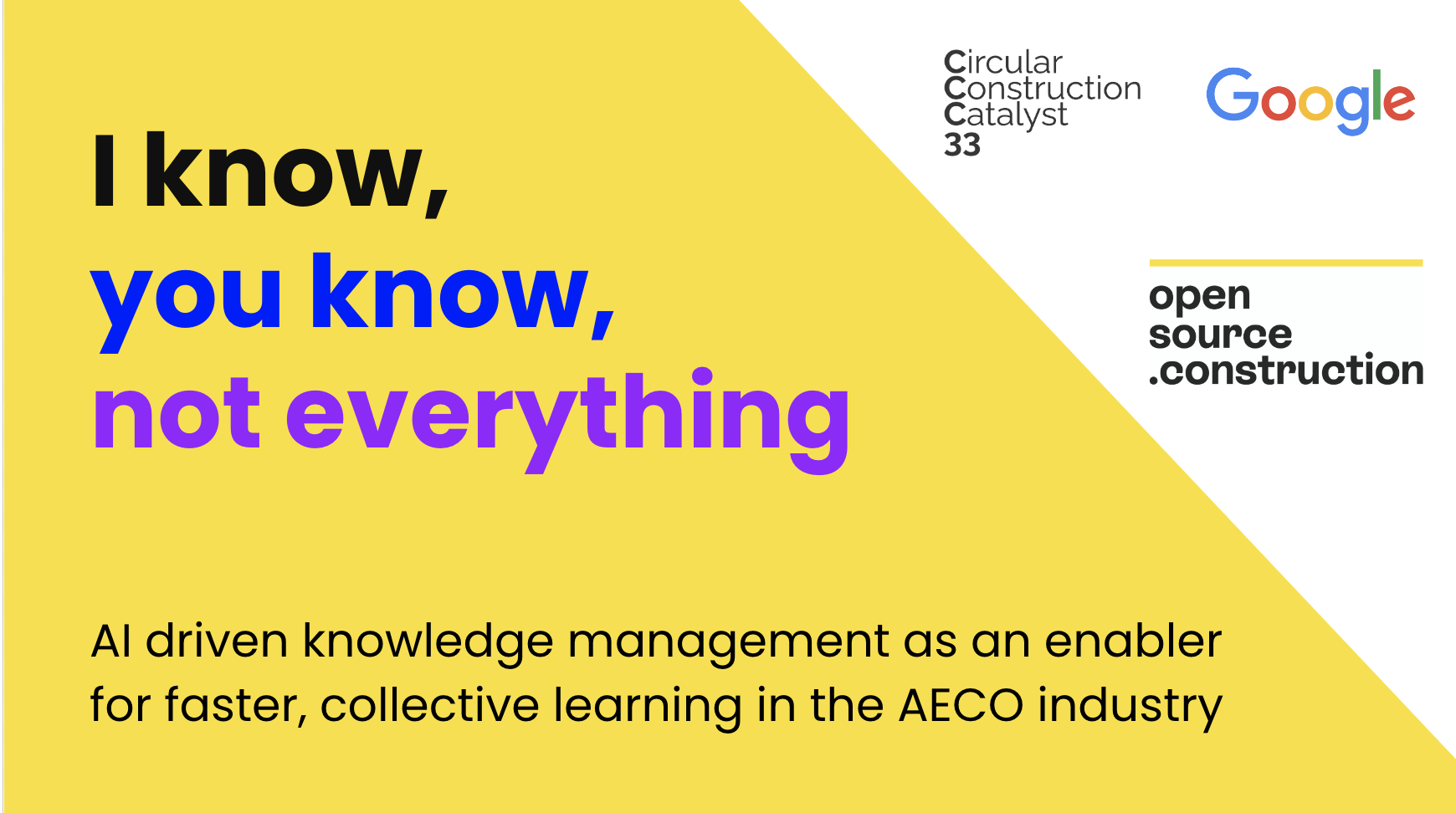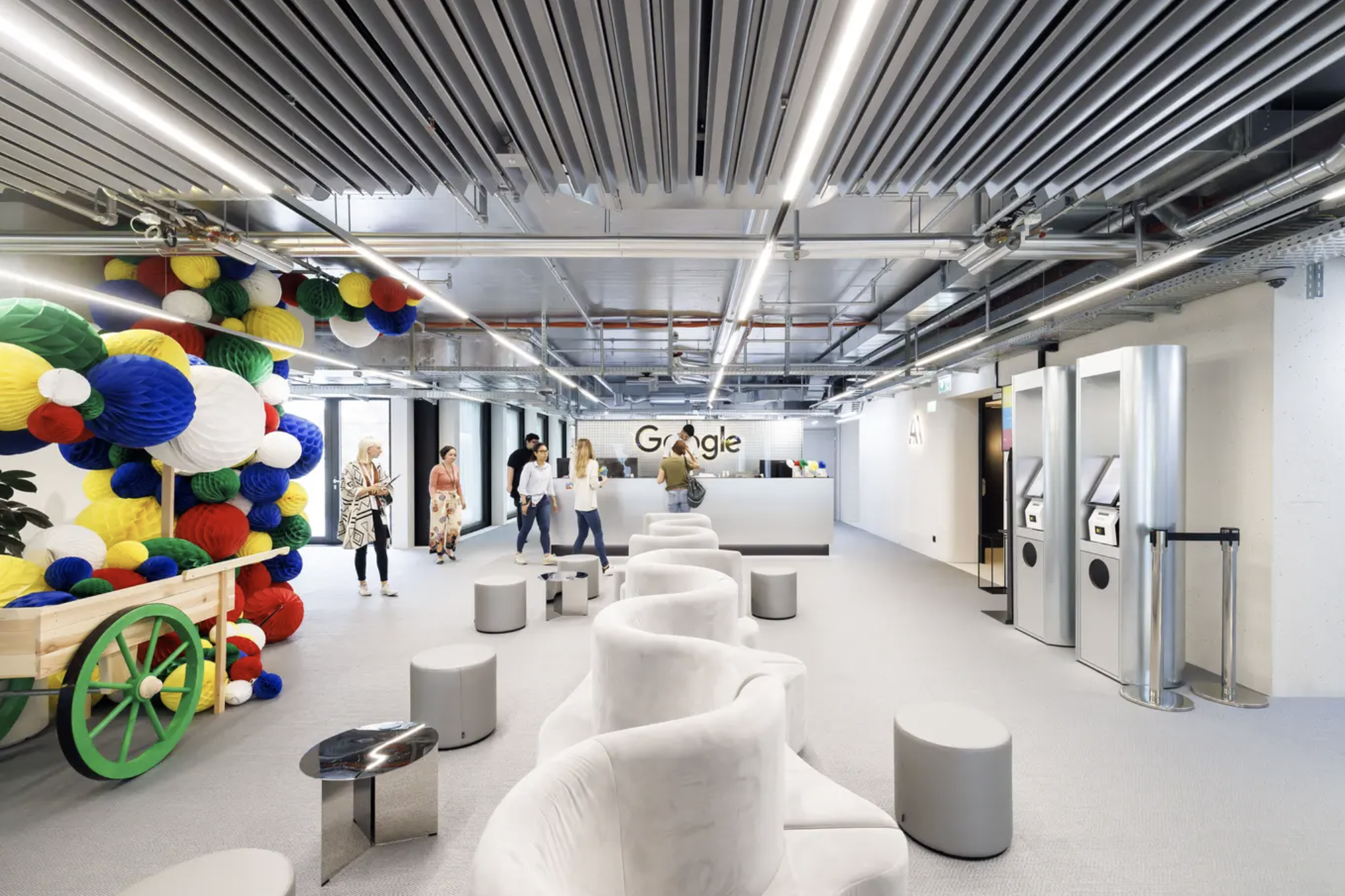Are you struggling with how both you as an individual and your organisation as a whole can keep up to date with the accelerating pace of change? Do you think that AI can help you with this, but don't know exactly how? Then come along, learn from the experts and discuss technology and latest trends on eye-level. Let's practice to learn from each other.

Date
September 12, 2024 / 15:30 – 20:00
Schedule
16:00 - 16:10 Welcome & Introduction> 16:10 - 17:10 Block 1 (15min each + 5 min Q&A)- Vertex AI (Google): predictive vs. generative AI – the limits for fact based search and the potential for individual automation - Trustworthy AI (IBM): Applying AI in a closed context within an organisation while avoiding hallucinations - The concept of RAG (Ateleris): Using retrieval-augmented generation (RAG) to improve reliability and accuracy of information retrieval processes >20 min break
17:30 - 18:30 Block 2 (15 min each + 5 min Q&A)- AI & Digital Sovereignty (BFH-Wirtschaft, Institut Public Sector Transformation): Risks and possibilities associated with current practices around Large Language models for the public sector - Supportive AI (Nukleus): Using AI tools for intuitive navigation of complex project management challenges - Circular Construction Co-Pilot (opensource.construction & C33): learning and improving together empowered by digital tools >18:30 - 20:00 Apero & networking
Description
More and more knowledge is being created in less and less time. AI and new software tools here, new construction products, construction processes and calculation methods there. This acceleration is a clear sign of progress, but also a challenge. It is becoming clear that it is no longer enough to rely on one's own experience. More dynamic forms of knowledge transfer are needed in order to stay up to date.
The event will focus on two topics in this context: AI driven data engineering and the social engineering between human to human interaction on public Q&A platforms.
Firstly, we will learn from experts how technology can help us to better find our ways through the jungle of information out there. In the context of AI, the following inputs will be provided:
Patrik Dragičević from Google’s Cloud team will talk about the difference between generative and predictive AI, what it means for fact based search and showcase what tools Google provides comfortably out of the box to utilise these technologies with immediate impact.
Our trust in technology relies on understanding how it works. It’s important to understand why AI makes the decisions it does. Georg Olowson will talk about IBM’s efforts to make AI more explainable, fair, robust, private, and transparent. Or in IBM’s words: trustworthy.
Laszlo Etesi from Ateleris will give us insights into why structured data is of utmost importance for stable AI driven processes and emphasise on the potential of retrieval-augmented generation (RAG) to extract fact-based information from large amounts of text.
After a break to discuss the inputs, we get practical insights into further use cases.
The potential of using existing, large sets of texts and further data points to improve public services is huge. In order to exploit this treasure, certain rules apply regarding data protection. Prof. Dr. Marcel Gygli from BFH’s Institute for Public Sector Transformation will give us insights into some of these limits and present an example from the Federal Office of Justice (Bundesamt für Justiz) that showcases potential ways to deal with these boundaries. The keywords here: Digital sovereignty.
Afterwards, we will get insights into the practice of a tech startup (Nukleus) that has a strong focus on information retrieval processes based on existing documents. Piotr Dawidowicz will talk about their approach to optimising project management also for less experienced managers with the help of smart AI tools.
When it comes to making knowledge accessible, human to human interaction still plays an important role. In his input, Maximilian Vomhof from opensource.construction and Kira Kulik from C33 will look into the social engineering behind successful Q&A platforms such as Stack Overflow and Reddit, two of the most visited websites on the internet, to find out why people share knowledge publicly. An intro to the "Circular Construction Co-Pilot" project shows how these successful mechanisms can be made accessible for people in the real estate and construction industry as well.
To close off the evening, we gather for a nice Apero to discuss tech and non-tech opportunities in a relaxed atmosphere.
Target Audience
This event is tailored to non-technical decision makers from the AECO (Architecture, Engineering, Construction, Operation) industry that are keen on getting a more in depth understanding of the current dynamics in the technology industry. The event follows the principle: Learn & Talk. You can listen to the inputs and process the information in the discussions afterwards. In depth knowledge of AI is not required, a certain amount of curiosity is all you need to bring.
Organiser
opensource.construction together with C33 and Google
Location
Google Schweiz Europaallee 20, Raum Tech Talk Berlin Zürich, CH
